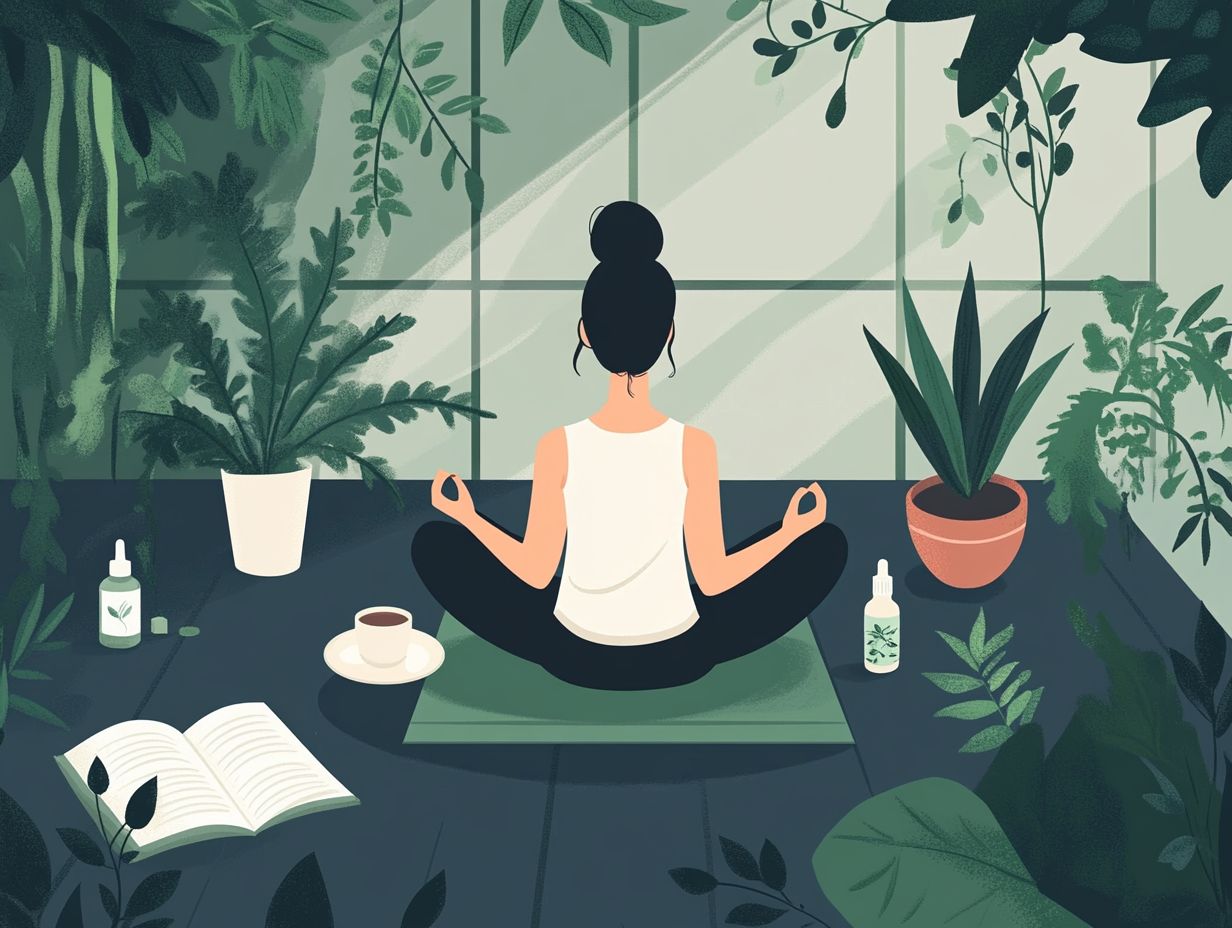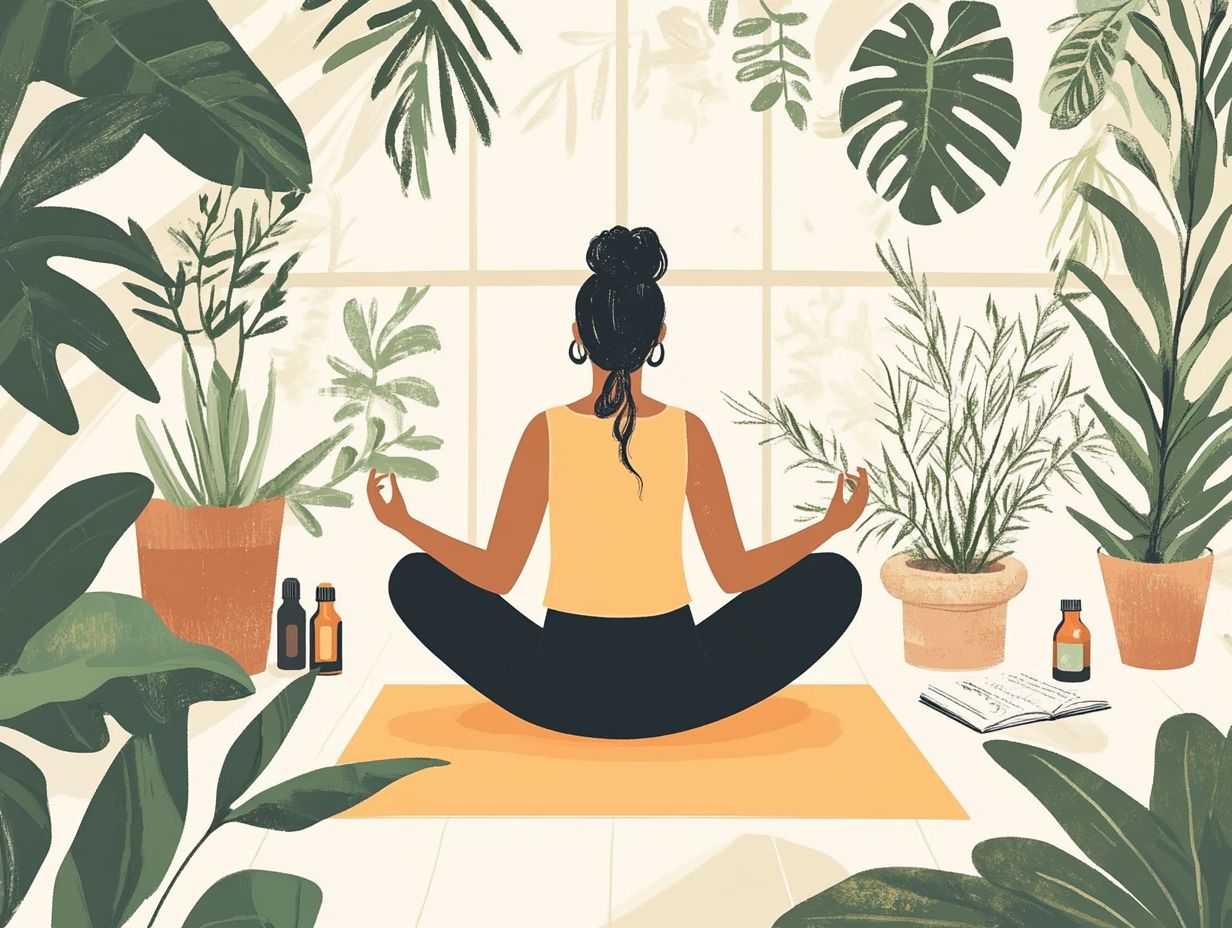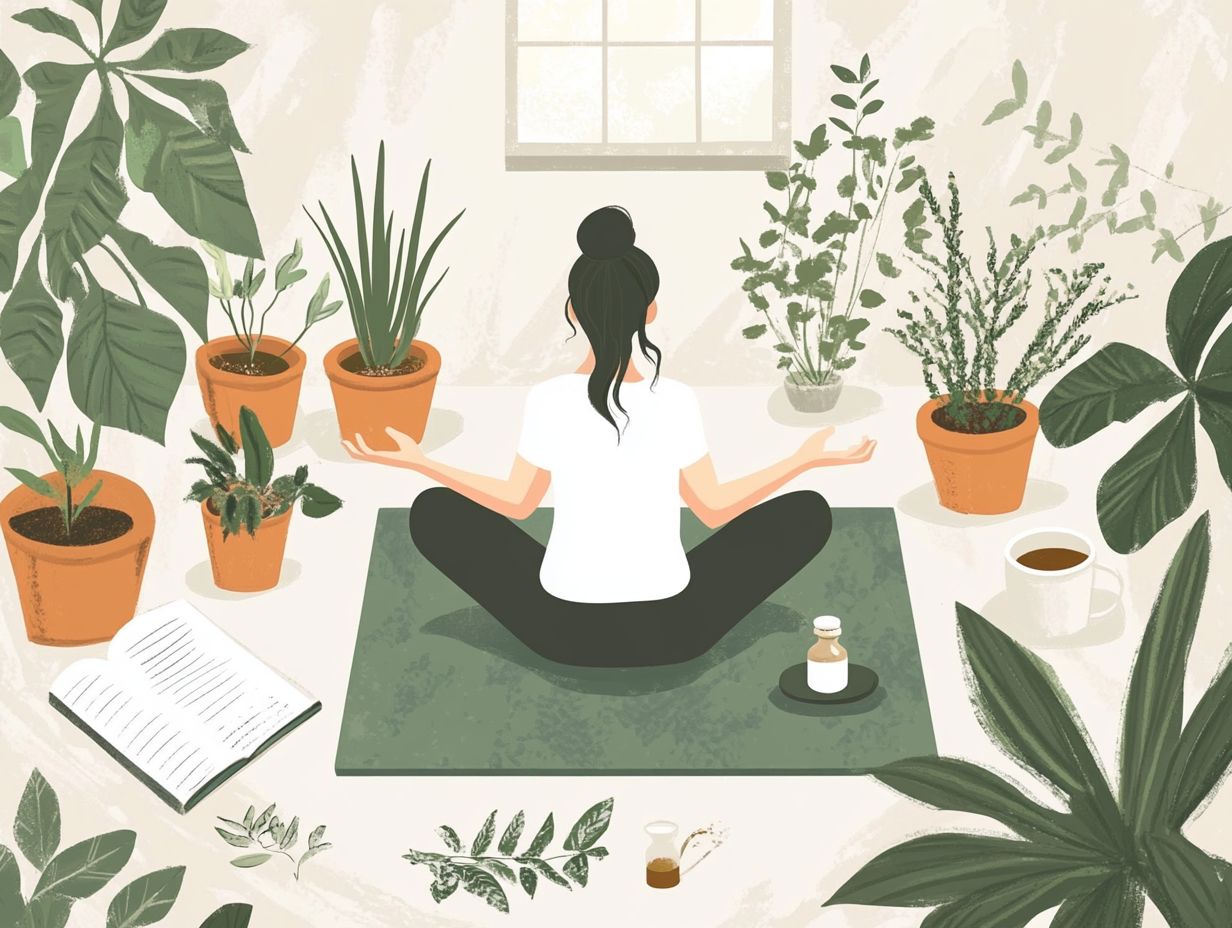Managing stress is crucial for maintaining both mental and physical health, especially for patients dealing with the pressures of daily life. This article explores five effective stress relief techniques and stress management tips, such as yoga and meditation, that can be easily incorporated into everyday routines to enhance well-being.
- Deep Breathing Exercises: These exercises help reduce stress by activating the body’s relaxation response, thereby lowering heart rate and blood pressure.
- Progressive Muscle Relaxation: Focuses on tensing and relaxing muscle groups to alleviate anxiety and promote physical relaxation.
- Mindfulness Meditation: Encourages focusing on the present moment to improve mental health and emotional resilience.
- Guided Imagery: Utilizes visualization of calming environments to manage stress and enhance mental clarity.
- Yoga and Stretching: Improves flexibility, reduces stress, and promotes relaxation and mental well-being through movement and breath control.
By understanding how stress affects the body and recognizing common symptoms, patients can leverage these relaxation techniques to manage anxiety, improve emotional health, and connect with others for social support effectively.
Incorporating stress relief practices, such as maintaining a healthy diet and engaging in physical activity, into daily life fosters resilience and contributes to overall well-being.
Key Takeaways:
1. Deep Breathing Exercises

Benefits of Deep Breathing
Deep breathing is a stress reliever that helps tame stress by promoting calmness and relaxation.
Deep breathing exercises reduce stress by focusing on controlled inhalation and exhalation techniques.
These exercises activate the body’s relaxation response, lowering heart rate and blood pressure, which contributes to calmness.
Practices like the 4-7-8 method and box breathing improve focus, enhance emotional health, and serve as effective stress relievers.
Integrating deep breathing into daily routines can improve mood, boost emotional resilience, and support stress management efforts.
2. Progressive Muscle Relaxation
Importance of Progressive Muscle Relaxation
This technique is recommended by health care providers for its ability to reduce tension and anxiety.
Progressive Muscle Relaxation is a relaxation technique that involves tensing and then relaxing muscle groups to reduce stress and improve relaxation.
Progressive Muscle Relaxation works by focusing on different muscle groups, starting with deep breathing, tensing muscles for five seconds, and then relaxing them to achieve calmness and reduce anxiety.
3. Mindfulness Meditation
Mindfulness meditation is a practice where individuals focus on the present moment to enhance mental well-being and reduce stress.
Practitioners observe thoughts and feelings without judgment.
Mindfulness involves paying attention to breath or bodily sensations to create calm and enhance mental well-being.
Benefits of mindfulness meditation include improved mental health and stress reduction:
- Reduced anxiety
- Improved concentration
- Emotional resilience
4. Guided Imagery

Guided imagery is a relaxation technique that uses visualization to create calming mental images, helping to manage stress.
Guided imagery works by focusing on serene environments like a beach or forest to reduce anxiety and promote relaxation.
Research shows guided imagery can significantly reduce stress levels in therapy, classrooms, and medical settings.
Examples include:
- Visualizing a safe haven
- Combining deep-breathing with pleasant imagery
5. Yoga and Stretching
Yoga and stretching are physical activities that improve flexibility and relieve stress through movement, breath control, and mindfulness.
Yoga styles like restorative or hatha yoga provide tailored approaches to enhance relaxation and mental focus.
Regular practice of yoga and stretching can be integrated into daily routines to promote physical fitness, emotional well-being, and mental health. Laughter and getting enough sleep are also beneficial for stress relief.
What Is Stress and How Does It Affect Patients?
Stress is a physiological and psychological response to external pressures, affecting patients’ mental and physical health. Engaging in creative activities or seeking counseling can be beneficial in managing these responses.
Stress leads to symptoms like anxiety, headaches, fatigue, and weakened immune response.
Stress affects patients by causing emotional instability and increasing the risk of depression.
Managing stress involves practices like mindfulness, physical activity, and building a support system.
What Are the Common Symptoms of Stress?
Recognizing stress symptoms early can help in adopting healthy stress management techniques.
Common symptoms of stress include physical signs like headaches, fatigue, muscle tension, gastrointestinal problems, and sleep disturbances.
Emotional symptoms of stress involve anxiety, irritability, and feelings of overwhelm or sadness.
Behavioral symptoms of stress include social withdrawal and unhealthy coping mechanisms such as overeating, substance abuse, or neglecting exercise and a healthy diet.
Recognizing these symptoms of stress is crucial for effective management. Consulting with a health care provider can provide personalized strategies to address stress.
How Can These Techniques Help with Stress Relief?
Stress relief techniques such as deep breathing, progressive muscle relaxation, and mindfulness meditation help manage anxiety and improve emotional health.
Deep breathing reduces heart rate and blood pressure, promoting calmness.
Progressive muscle relaxation alleviates physical tension related to stress.
Mindfulness meditation decreases negative thought patterns by focusing on the present.
Incorporating these techniques into daily routines enhances stress management and emotional resilience.
What Are the Key Benefits of Each Technique?

Mindfulness meditation reduces anxiety by enhancing awareness and control over thoughts and emotions.
Progressive muscle relaxation increases physical relaxation by relieving bodily tension.
Guided imagery improves mental clarity by promoting visualization techniques that foster a positive mindset.
How Can Patients Incorporate These Techniques into Their Daily Routine?
Tame stress by incorporating laughter and music into daily activities, along with physical exercises like yoga.
Stress management techniques, such as yoga, deep breathing exercises, and mindfulness meditation, can be incorporated into daily routines. Additionally, patients can keep a journal to reflect on their progress and stressors.
Scheduling tools or apps can send reminders to maintain consistency.
Creating a distraction-free space enhances focus on these activities.
Personalizing the choice of techniques builds ownership in the wellness journey.
Consistent practice builds resilience against stress and improves overall well-being.
Are There Any Precautions to Consider Before Trying These Techniques?
Being mindful of physical limitations and consulting a health care provider ensures safe practice.
Before trying stress management techniques, consider existing mental health conditions and physical limitations.
Consulting a healthcare provider can provide tailored advice and ensure the chosen methods are safe.
For anxiety disorders, mindfulness practices like meditation should be approached cautiously to avoid heightening anxiety initially.
For chronic pain, consult before trying intense physical activities like yoga or high-impact workouts to avoid exacerbating symptoms. Consider gentle exercises and relaxation techniques as alternatives.
Frequently Asked Questions
What are some effective stress relief techniques for patients?
Incorporating a healthy diet and avoiding unhealthy habits can complement these techniques.
Some effective stress relief techniques for patients include meditation, exercise, deep breathing, journaling, and spending time in nature.
How can meditation help patients reduce stress?

Meditation involves focusing on the present moment and clearing the mind of distracting thoughts. This can help patients reduce stress and improve their overall well-being.
Is exercise a good stress relief technique for patients?
Yes, regular physical activity can help reduce stress levels in patients. Exercise releases endorphins, which are natural mood-boosters, and can also help patients relax and clear their minds.
Can deep breathing techniques help patients manage stress?
Yes, deep breathing exercises can help calm the mind and body, reduce muscle tension, and promote relaxation. It can be especially helpful for patients experiencing anxiety or panic attacks.
How can journaling be a helpful stress relief technique for patients?
Journaling can also be combined with creative activities to enhance its benefits.
Journaling allows patients to express their thoughts and emotions, which can help them process and cope with stress. It can also provide a sense of control and perspective, and serve as a form of self-care for patients.
Why is spending time in nature recommended for stress relief in patients?
Activities like hiking or simply enjoying a cup of green tea in a natural setting can be quite soothing.
Spending time in nature has been shown to have a calming effect on the mind and body. It can help patients disconnect from stressors and promote relaxation and mental clarity.








